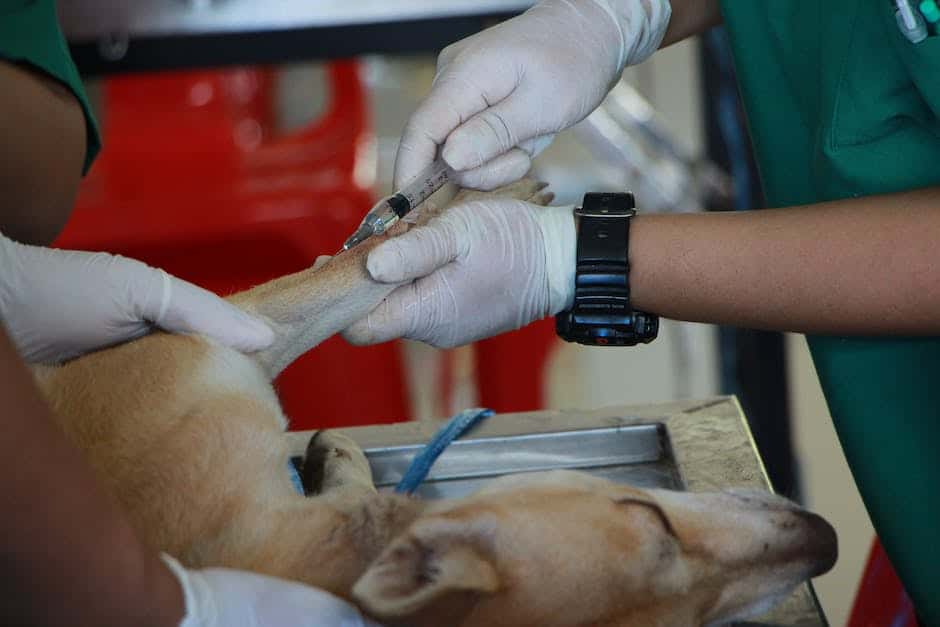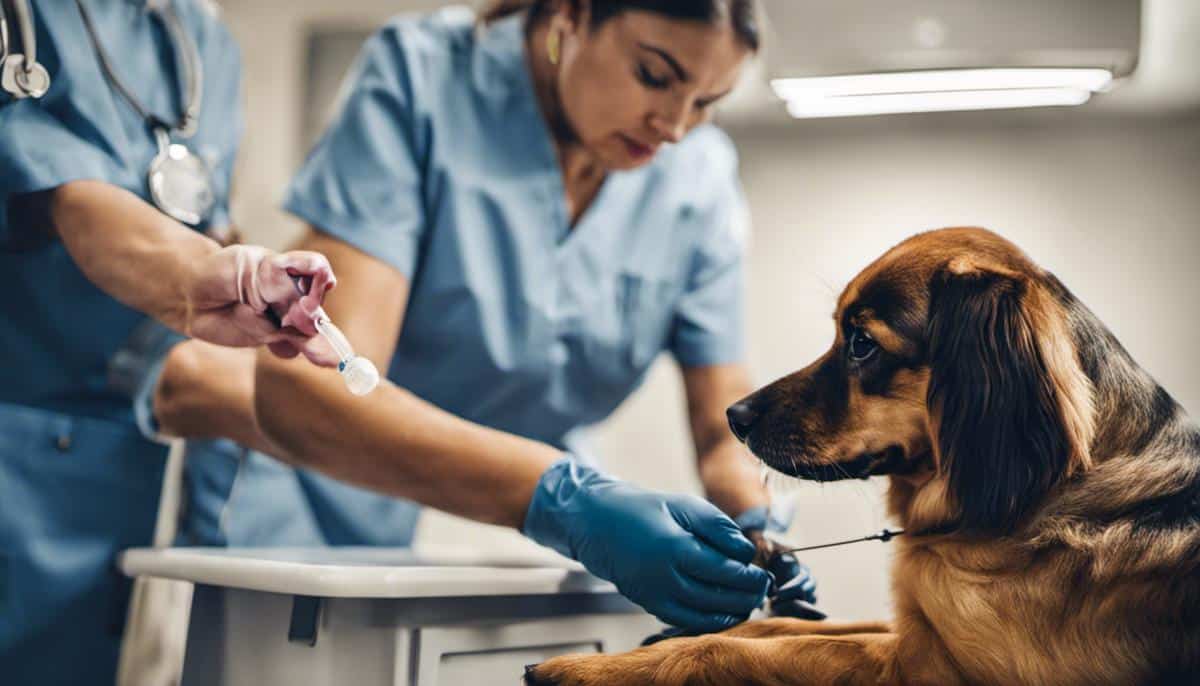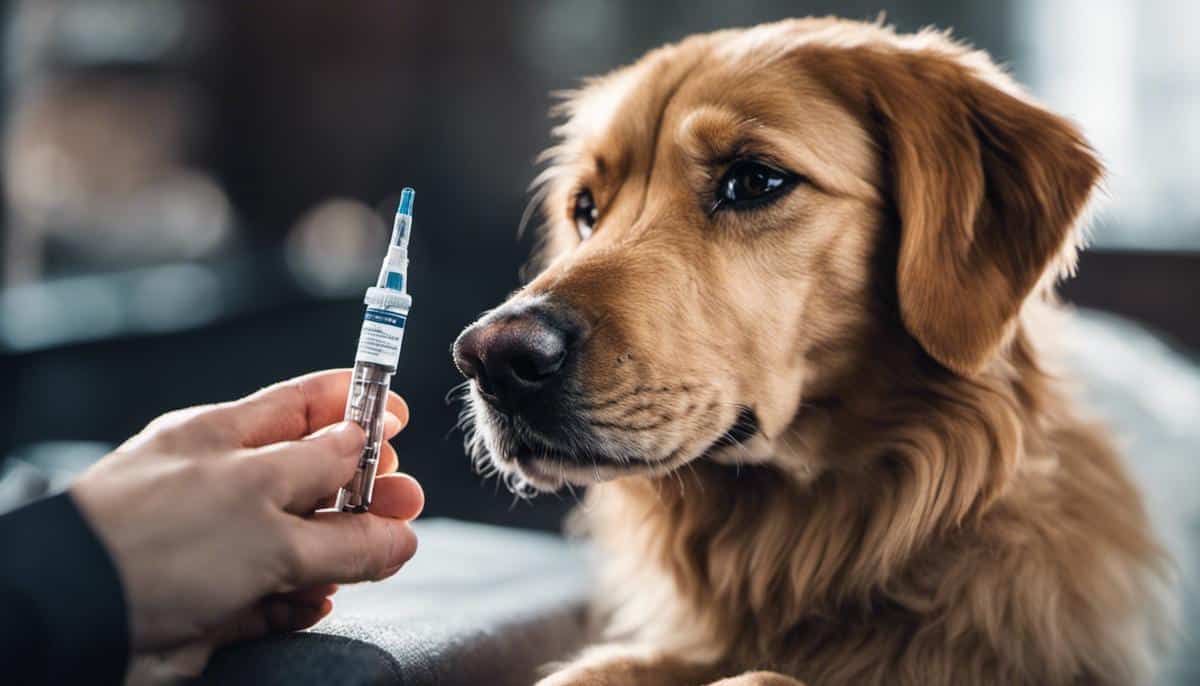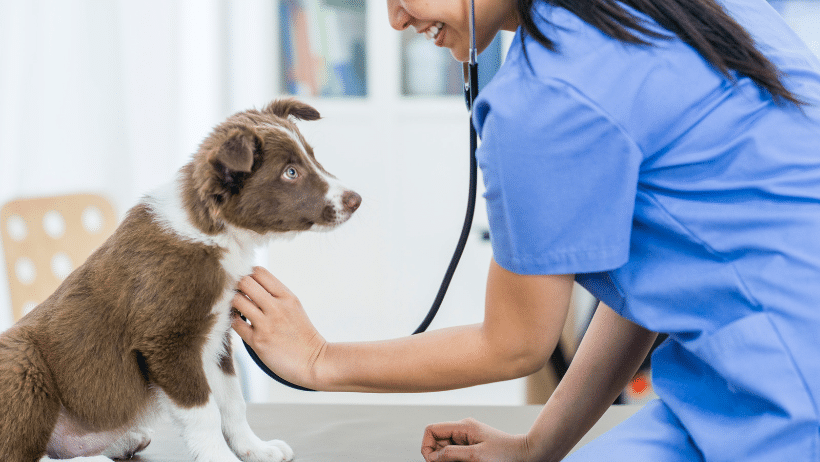
With millions of beloved dogs being part of American families, one cannot emphasize enough the critical role that routine vaccinations play in assisting our four-legged companions to lead healthy, disease-free lives. Unbeknownst to many, these vaccinations are our first line of defense against some of the most common and highly contagious canine diseases such as rabies, distemper, parvovirus, and hepatitis.
However, navigating the vaccination schedules, vet visits, and understanding post-vaccination care can sometimes be complicated and daunting, thereby presenting areas of concern for pet owners who desire the very best for their furry charges. This work will guide you through the all-important considerations surrounding your dog’s vaccinations, the correct timing, the intricacies of veterinary visits, and post-vaccination care, with all suggestions carefully backed by professional veterinary advice.
Understanding the Importance of Yearly Dog Vaccinations
The Essentials: Why Annual Vaccinations Matter to Your Dog’s Health
If there’s one thing that binds us to our pets, it’s the love we have for them—like an additional member of our family, their health and well-being are paramount.
Dogs’ hugs and laughter fill our homes, making the importance of their health care non-negotiable.
Being the parent of a fur-baby includes not just belly rubs and snuggles, but also taking comprehensive care of their physical and mental health.
One fundamental step in ensuring their wellness is keeping up with your dog’s yearly shots.
Now, it’s essential to understand why are those yearly vaccinations so important for dogs. Let’s delve deeper.
As the old saying goes, an ounce of prevention is worth a pound of cure.
Vaccinations play a pivotal role in preventing the risk of potentially deadly diseases in our canine companions.
These include parvovirus, distemper, leptospirosis, and of course, the dreaded rabies—all are diseases easily preventable with basic vaccinations.
They can help ensure a longer, healthier life for our beloved pets, free from the distress of suffering and possible long-term impacts of these ailments.
Young pups, for instance, start their immunization series as early as six weeks of age, with boosters administered every three to four weeks until they’re about sixteen weeks.
These injections play an important role, in protecting them when their bodies are most vulnerable.
For adult dogs, yearly vaccinations act as a reminder of sorts to their immune system to keep up defenses against these diseases.
In addition to bodily wellness, did you know vaccinations are also legally required in many places?
Rabies, a fatal disease for both dogs and humans, requires a yearly vaccine in most states.
Without this proof of vaccination, you may face legal complications, which is an unnecessary hassle when it’s easily preventable.
Now, people often wonder, are there any risks associated with yearly vaccinations?
Veterinarians agree that vaccination risks are significantly less than the risk of contracting the diseases they prevent.
Mild fever, sluggishness, and reduced appetite for a day or two are normal post-vaccination symptoms.
However, like everything in life, moderation is key.
A trusted veterinarian can provide a tailor-made vaccine schedule for your pup based on its breed, size, age, lifestyle, and overall health condition.
To sum up, as parents who love our fur babies, their happiness and health cannot merely be a privilege—it’s a commitment.
Our pets trust us with their health and rely on us as their voice in care.
They bring us joy, companionship, and unconditional love, and the least we can do is ensure they are healthy and protected.
So when it comes to annual vaccinations, making that yearly trip to the vet isn’t just a note on the calendar—it’s a step to the well-being of our dogs that they so genuinely deserve.
A healthier pet equals a happier home.
So here’s a gentle reminder to all loving dog parents: keep up with those yearly vaccinations—for their sake and ours.

Deciphering Dog Vaccination Schedules
Ensuring your Furry Pal’s Health: The ‘When’ and ‘Why’ of Dog Vaccinations
As a family, a dog isn’t just a pet. They’re an integral member of our household, bringing love, companionship, and endless joy. Just like we take care of our children’s health, taking care of our dogs’ health is crucial as well. That’s where vaccination plays a cardinal role.
Completing the vaccination routine isn’t just about adhering to a schedule. It’s about safeguarding your furry friend’s health and maintaining the overall well-being of your family. You see, the saying “prevention is better than cure” perfectly applies in this scenario.
If you’ve been following a puppy’s vaccination regimen, you’ll know it starts with a series of jabs at the tender age of six to eight weeks. These shots take into account common ailments, as discussed, and repeat every three to four weeks until they’re about 16 weeks old.
For adult dogs who have completed their puppy vaccines or were immunized as adults, the shots align with a periodic schedule. To avoid repetition, it’s better to confirm the timings with a vet since vaccines differ based on factors like age, medical history, environment, travel habits, and lifestyle.
Just as core vaccines ensure our children are protected against measles, mumps, and rubella, there are core vaccines for dogs as well. These protect against diseases such as Distemper, Parvovirus, and Hepatitis. A Rabies vaccination is also a legal necessity in many areas, along with being a core vaccine.
It’s important to realize that these vaccinations are not one-size-fits-all. Awareness of potential risks and side effects, which vary from slight fever to rare allergic reactions, is critical before vaccination.
But there’s no need to panic! Your vet will partner with you to come up with a personalized health plan for your dog, including a custom-tailored vaccination schedule. This will account for all individual factors like breed, age, overall health status, and exposure to disease. This way, you can decently mitigate potential risks and boost your dog’s immune response effectively.
What this all leads to is the undeniable responsibility we have as pet parents. It’s critical to keep the appointment with the vet and follow the correct dosages and vaccination schedule. You’re not just ensuring your pups’ overall health, but also preventing any possible outbreaks in the dog population in your community.
Yes, vaccinations for your dog are a commitment, one that requires a lot of love and patience. However, knowing our beloved fur-buddies are protected against irreversible illnesses makes it all worth it. So, let us together strive to be responsible pet parents and ensure our dogs get the vaccines they need according to the stipulated schedule – for their health, ours, and the overall well-being of the community.
Remember, a little effort today leads to a healthy and happy pal tomorrow!

Navigating Vet Visits and Post-Vaccination Care
Reducing the Stress of Vet Visits
Which dog enjoys a trip to the vet? Not many! The ambiance of the clinic, the scent of other pets, and the possibility of uncomfortable activities can make that much-needed vet visit a stressful ordeal for your furry friend.
But there are ways to make these trips less stressful for your beloved pet. Pre-visit training can work wonders in preparing your dog to face vet visits with a calm mind. Introducing your dog to being handled—touching their paws, ears, and tail—can help them feel more comfortable during their exam. Pair this with positive reinforcement like treats or praises, and the dog will soon associate being touched and restrained with positive experiences.
Frequent socialization visits to your vet clinic when there are no treatments due can also be beneficial. These visits can allow your dog to get used to the sights, smells, and sounds of the clinic without associating them with pain or discomfort.
Consider bringing your pet’s favorite toy or blanket during the visit to give them a sense of familiarity and comfort. The presence of such items can help dogs cope with anxiety associated with vet visits. Also, using a pheromone spray or collar can soothe your dog’s nerves and make the experience less stressful.
The Care Needed Post-Vaccination
Just like us, our furry friends may feel a bit under the weather after their vaccinations. They might exhibit mild symptoms like fever, sluggishness, and reduced appetite—typically short-lived and disappear within a day or two.
It’s important to keep an eye on your pet following vaccinations. If your dog seems overly lethargic, experiences vomiting, or diarrhea, or shows signs of discomfort or distress, reach out to your vet promptly. While rare, these could indicate adverse reactions requiring immediate attention.
Give your dog plenty of rest and quiet time for a day or two following the shots. If they are normally active, encourage restful activities, such as cuddling or gentle play. Avoid planning vigorous activities or long walks during this period.
Hydration is also essential post-vaccination. Ensure your dog has a steady supply of fresh water and feed them light, easily digestible meals.
Remember, caring for your dog doesn’t stop at getting them vaccinated. Post-vaccination care is pivotal in ensuring your pet’s well-being and speedy recovery. It’s just another way that you, as dedicated and responsible pet parents, can show your love and care for your four-legged family member.

Hopefully, by now you should have a clearer understanding of the vital importance of maintaining a regular, annual vaccination regime for your dog. Beyond being a legal requirement, these vaccinations are instrumental in preventing afflictions, some potentially fatal, that your pet might otherwise suffer. Moreover, equipped with knowledge about the schedule, you are better placed to ensure your pet’s overall health by not missing crucial vaccination dates.
Despite the potential stresses that vet visits can bring to both the pet and the owner, putting in the effort to ensure these visits are as comfortable as possible will pay dividends in your pet’s well-being. Lastly, by knowing what symptoms to look out for and how to adequately care for your pet post-vaccination, you stand a better chance of minimizing any discomfort the dog might feel. At the heart of it all is your beloved pet’s health and happiness, and with this comprehensive guide, your commitment to your dog’s well-being just received a significant boost.
Legal Disclaimer
The information provided in this blog post is for informational purposes only and should not replace professional advice from a veterinarian or certified dog groomer. Always consult professionals for any serious grooming or health concerns involving your pet.




